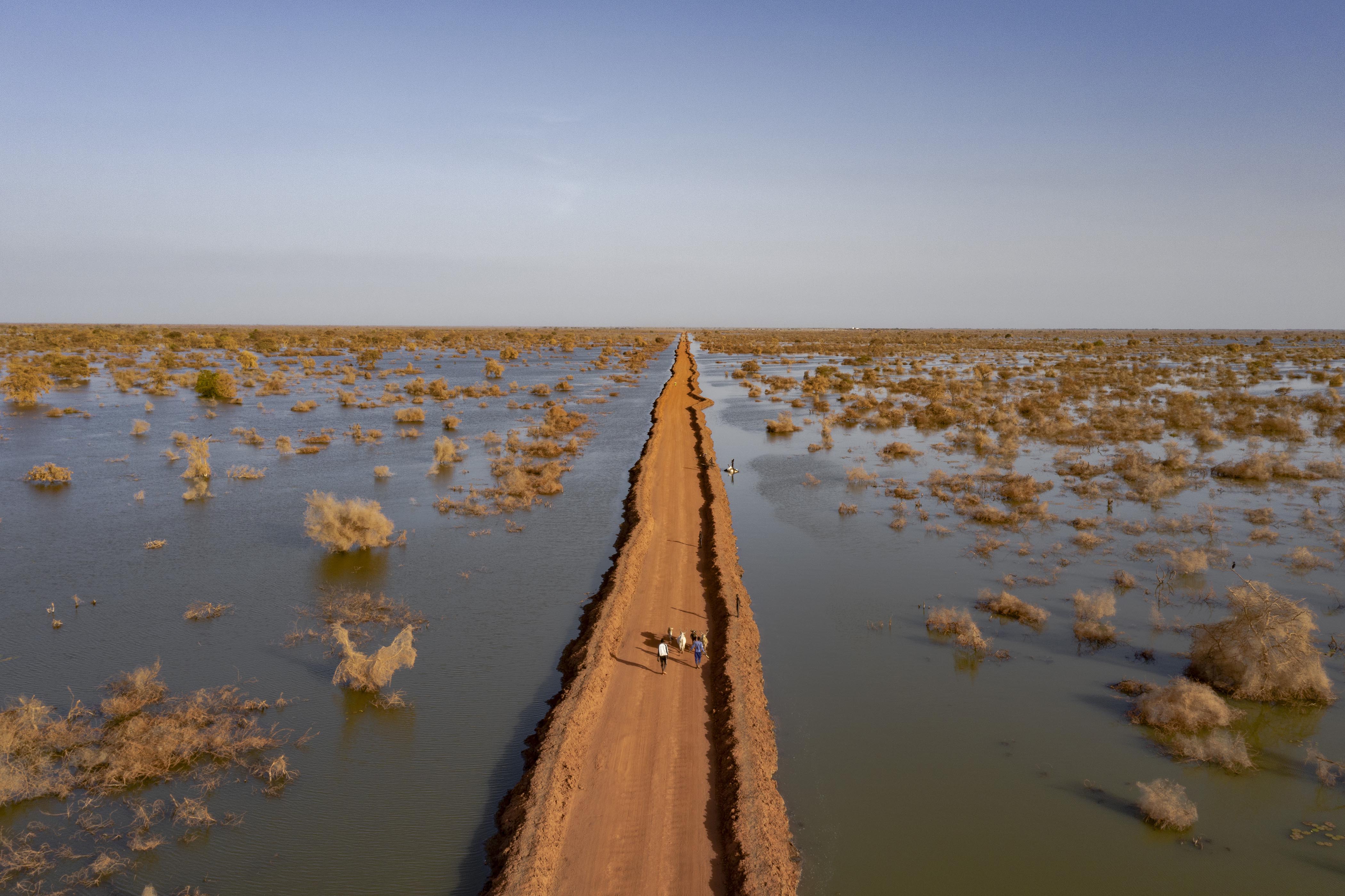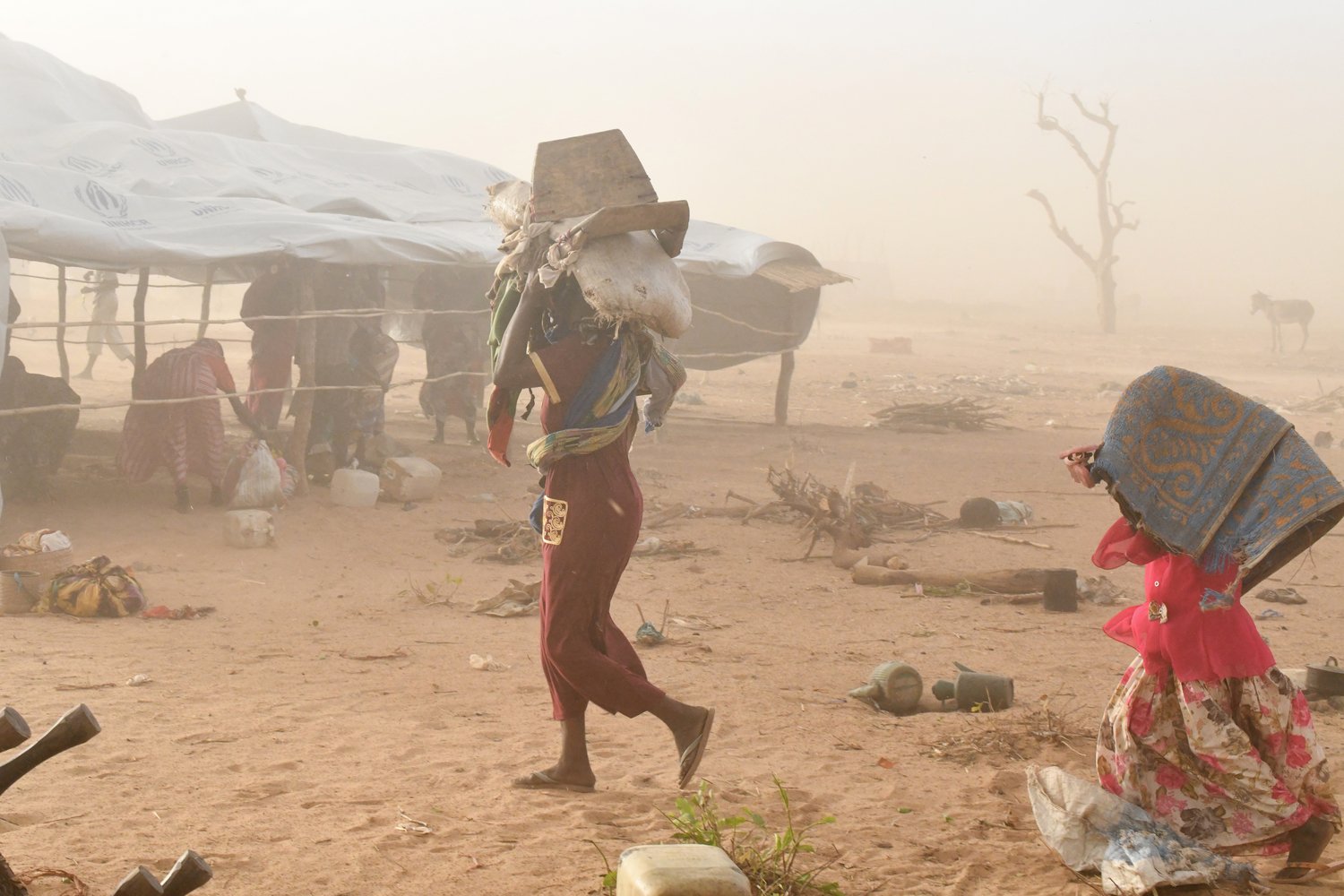UNHCR appeals for accelerated help for refugees fleeing CAR, South Sudan
UNHCR appeals for accelerated help for refugees fleeing CAR, South Sudan
With humanitarian crises in Central African Republic and adjacent South Sudan UNHCR is increasingly concerned about the still unmet needs of refugees arriving in neighbouring countries, in particular Chad, Cameroon, and Ethiopia. We are appealing to our partners and the governments in these countries to help speed support to these populations - which although still relatively small in number are nonetheless in urgent need of assistance.
The crises in South Sudan and Central African Republic have together caused one of the biggest refugee and IDP situations Africa has seen in recent years, together having forcibly displaced some 1.8 million people across a region with very sparse support capacities.
Within South Sudan, there are currently over 739,000 people who are internally displaced and a further 196,921 sheltering in neighbouring countries. The UN estimates that by June as many as 3.2 million people could be in need of humanitarian help. Already food security is a problem.
With Central African Republic there are currently 701,500 people internally displaced and 290,801 who have fled as refugees. More than half the country's 4.6 million people are currently in need of humanitarian help (2.5 million, according to UN estimates).
In Chad, Cameroon, Ethiopia and other locations where refugees are arriving, the help effort for refugees arriving from these conflicts urgently needs stepping up.
In Cameroon 30,820 refugees have arrived so far this year from the Central African Republic and are facing shortages of clean water, food and shelter. Many are in poor physical shape and suffering from malaria, diarrhoea and respiratory infections contracted while they had been in hiding in the bushes in CAR. Many children under the age of five are showing varying degrees of malnourishment, also related to lack of food in CAR. Over the weekend, 15 malnourished children died before they could be saved Pressures on local communities are also rising with the influx, and help is needed for them too.
In southern Chad, some 8,000 CAR refugees are in the area around Sido - just across the border from CAR's main Route National 4. Many people are without shelter and are camping in the open beneath trees. Clean water and latrines are a problem. As existing refugee camps in this part of Chad are saturated with new arrivals, UNHCR is advocating with the Government to identify a new site where we can better address refugees' pressing needs, particularly for food, clean water, latrines and health services.
In Ethiopia, we are seeing refugees arriving in worsening states due to the lack of food inside South Sudan and the long distances that many have had to walk to reach the Pagak and Akobo border areas. Medical screening last week revealed that 27.7 per cent of children were suffering from global acute malnutrition and 11.1 percent from severe acute malnutrition (the worst kind). With our partners, we have immediately put in place a blanket supplementary feeding programme for children under five years of age, and pregnant and lactating mothers.
However, the increasing numbers of new arrivals are outpacing available humanitarian resources. Meanwhile, funding for both the Central African Republic and South Sudan emergencies remains far below needs:
For CAR the UN is seeking $551 million for 2014 under its Strategic Response Plan, of which UNHCR's needs are $112 million. With UNHCR's part we have received only nine per cent so far.
With South Sudan the UN is seeking $1.27 billion by June 2014, of which UNHCR's portion is $55 million. At present, $1.01 billion of the UN requirements have not been met. UNHCR has received only $12.4 million of the amount it has requested.
UNHCR will be seeking further funding in the near future to match the size and needs of the growing refugee populations fleeing from the Central African Republic and South Sudan. CAR refugees are found in Chad, Cameroon, the Democratic Republic of the Congo and the Republic of Congo. South Sudanese refugees are being sheltered in Ethiopia, Kenya, Sudan and Uganda.
Related photos at http://rfg.ee/uddhILink is external (zip file for download)
For more information on this topic, please contact:
- In Geneva: Adrian Edwards on mobile +41 79 557 9120
- In Geneva: Fatoumata Lejeune-Kaba on mobile +41 79 249 3483









